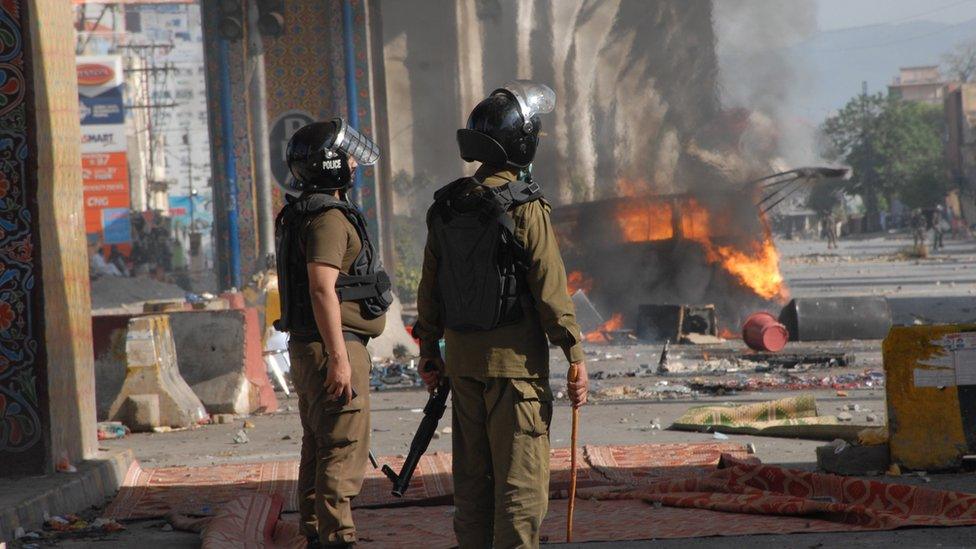Pakistan: Islamists against Muhammad cartoons stage comeback
- Published
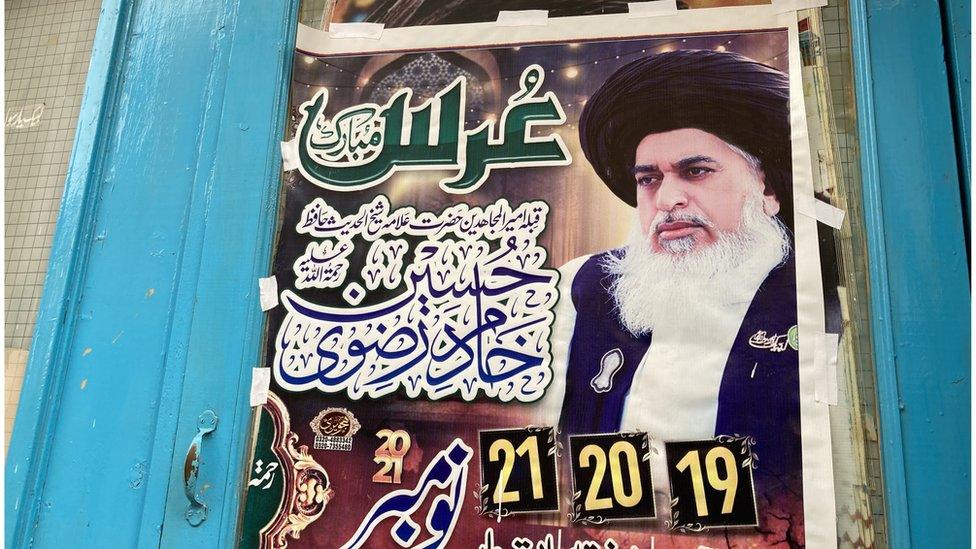
A poster of of the leader of the TLP, cleric Khadim Hussain Rizvi, posted on the anniversary of his death
Last month, Pakistan lifted a ban on the hardline Islamist party, Tehreek-e-Labaik Pakistan (TLP), which has been the face of anti-France protests over the reprinting of caricatures of the Prophet Muhammad. The TLP's jailed leader, as well as hundreds of his supporters, were released and the party will now be allowed to participate in mainstream politics. Many fear that the move has implications not just for Pakistan's politics but also for the wider region and the rest of the world.
On 31 October, police officer Irfan Ahsan was posted to provide security at Wazirabad town in Pakistan's Punjab Province, where hundreds of TLP protestors had been camping for more than a week with the aim marching to the capital Islamabad to force the government to expel the French envoy over the reprinting of caricatures of the Prophet Muhammad in a satirical magazine.
The protesters were also demanding the release of their leader, Saad Rizvi, who had been jailed under anti-terrorism laws.
The TLP mob kidnapped Ahsan when he went to buy medicine during his lunch break, according to his brother Usman Ahsan. Two days later, his badly mutilated body was recovered from a nearby hospital.
"We are so deeply hurt because those who killed him call themselves custodians of Islam, but I am not sure what kind of Islam they practice," Mr Ahsan told the BBC. "They have destroyed so many families and orphaned a little girl, just to get one person freed."
It was not the first time the TLP had been accused of such brutality. State police say that this year alone, TLP supporters have killed 10 policemen and tortured and injured another 1,300.
Who are the TLP?
The group was founded by firebrand cleric Khadim Hussain Rizvi in 2015. It is a hardline Islamist group that supports the country's controversial blasphemy laws that carry a death sentence for insulting Islam and the Prophet Muhammad.
The year the TLP was formed, its founder threatened to "wipe the Netherlands off the map" after Dutch Politician Geert Wilders announced a contest to draw caricatures of the Prophet Muhammad.
Khadim Hussain Rizvi died in November 2020, after falling ill while leading an anti-France protest at the height of the pandemic. He was agitating against remarks by French President Emmanuel Macron who defended the re-publication of caricatures of Prophet Muhammed after a schoolteacher was beheaded for allegedly displaying them during a lesson.
Rizvi was succeeded by his son Saad Rizvi, who reiterated the group's demands that Pakistan sever ties with France. At a major protest in April, they blocked major highways leading to the capital Islamabad. The government arrested Rizvi, and slapped terrorism charges on him along with hundreds of his supporters.
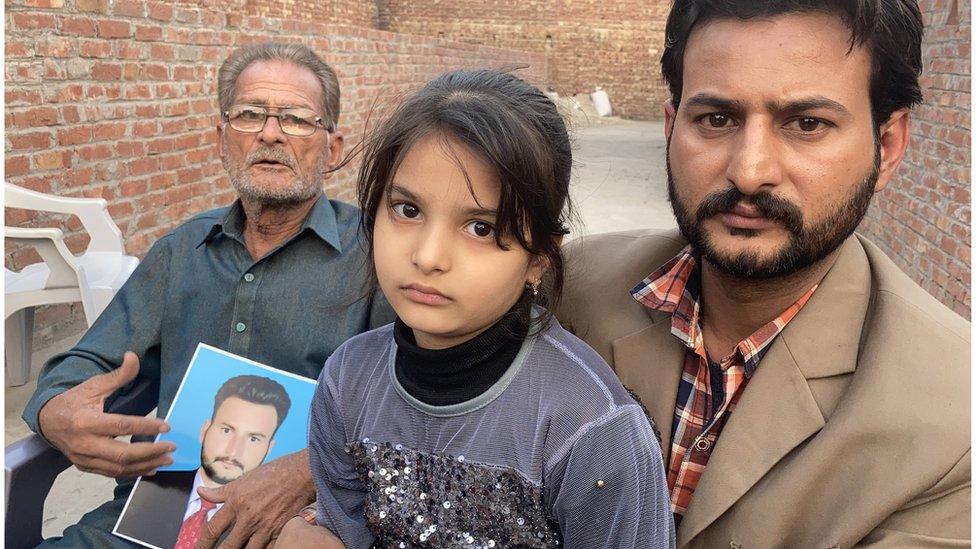
Family members of Irfan Ahsan hold up a picture of the deceased constable, who was assigned to provide security during a pro-TLP protest
Changing tides
But almost seven months later, the government has completely reversed its position. The ban on the group has been lifted, and leader Saad Rizvi and hundreds of other TLP workers released. The government has not disclosed the circumstances under which this was done but some media reports suggest that military chief General Qamar Javed Bajwa played a key role in the decision.
The government says that it has lifted the ban to avoid confrontation with the people who call themselves lovers of the Prophet of Islam. Some analysts believe it feared that the use of force against a group that projects itself as a custodian of the honour of the prophet could cost them politically.
Information Minister Fawad Chaudhry said the recent developments showed that the biggest threat is not India, but extremism within the country. "The way the state had to back off in the TLP's case, symbolises that the bomb (of extremism) is ticking," he said while addressing a press conference in Islamabad.
The TLP has built its narrative around the deeply emotional issue of the honour of the Prophet Muhammad, and this has found support among Muslim sects across the globe. The group boasts of its global popularity, and claims its footprint in the UK and Europe is well-known.
The TLP's Media Coordinator Saddam Bukhari claimed that when founder Khadim Hussain Rizvi died last year, devotees from across Europe travelled to attend his funeral.
Security analyst Amir Rana, from the Pakistan Institute of Peace Studies, said the way the government had handled the TLP issue had already disturbed Pakistan's foreign policy equilibrium with Europe, and the entry of the TLP into the mainstream was going to have far-reaching global implications.
"The world may not care about what is happening inside Pakistan, but there is concern about the TLP influencing the Pakistani diaspora and overseas communities in Europe and in the West," he said. "They feel that it may create some security challenges over there as well."
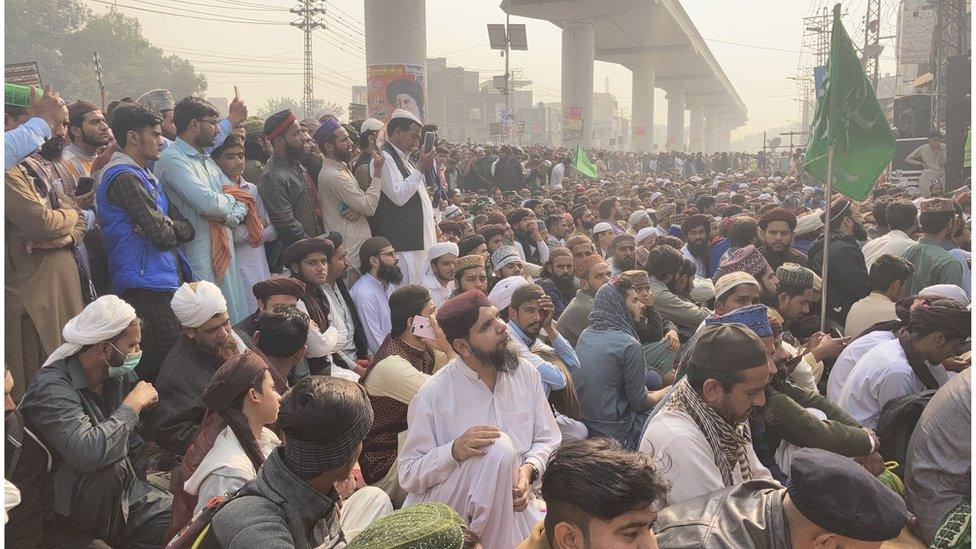
A congregation of TLP supporters in Lahore, who travelled from across the country
The TLP has so far successfully played on the issue of the honour of the Prophet Muhammad, the core ideology of the Barelvi sect of Islam. Pakistan is a Barelvi-dominant country, but they will have to explore new avenues to advance their influence if they are aiming to become a major political power.
Some commentators believe that the popularity of TLP's narrative is putting pressure on other political parties to also take a far-right approach and will further push the country towards extremism.
Dr Hassan Askari Rizvi believes that Pakistan's politics is already tilted toward the right and that despite its growing popularity in certain areas the TLP will not be able to emerge as a decisive power in the elections.
"It's highly likely that the group will have to become part of a coalition, and we will have to wait and see how far they can change or assert their position," he said.
Some analysts are of the view that although the TLP might not be able to secure a decisive majority, it can get enough votes to be used as political clout. And that may not be the best news for Pakistan's political landscape.
- Published27 November 2017
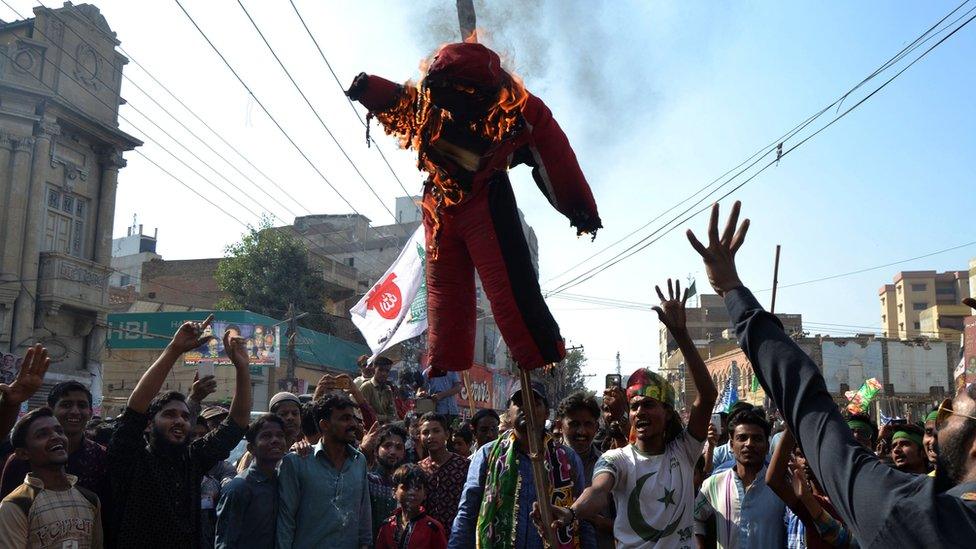
- Published15 April 2021
